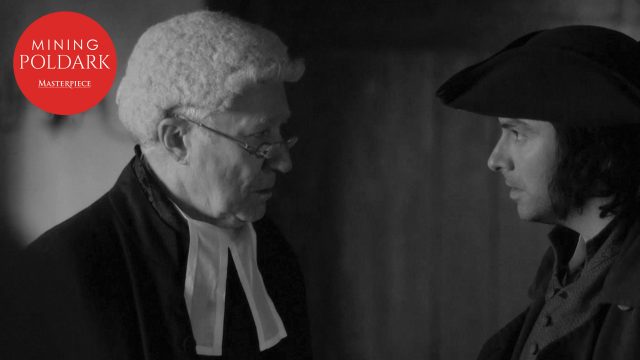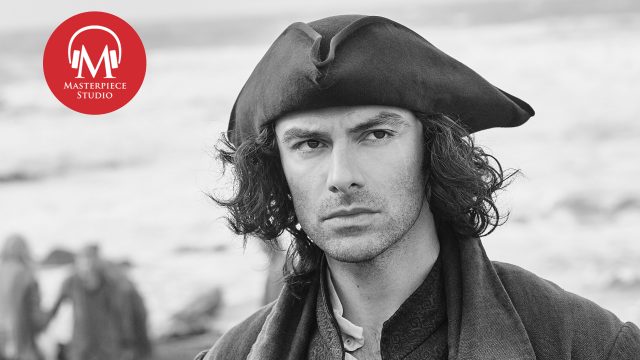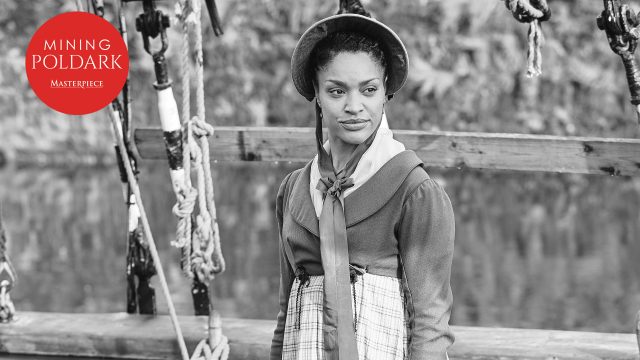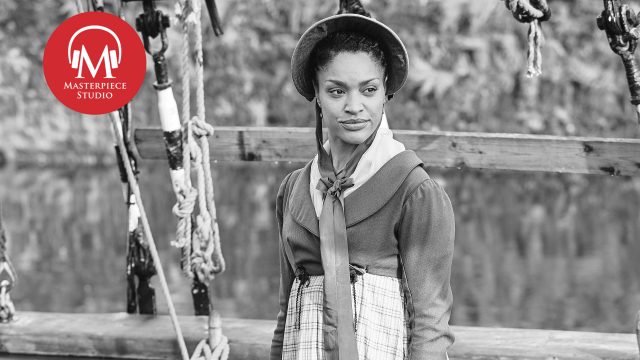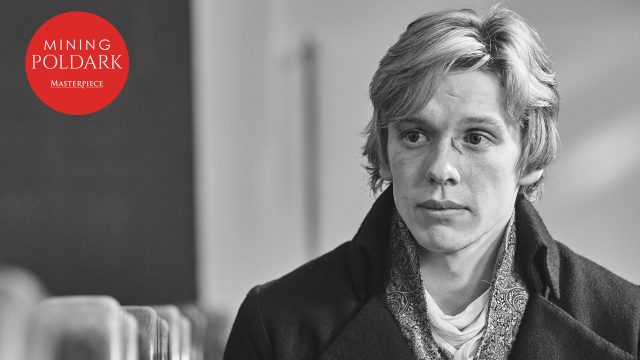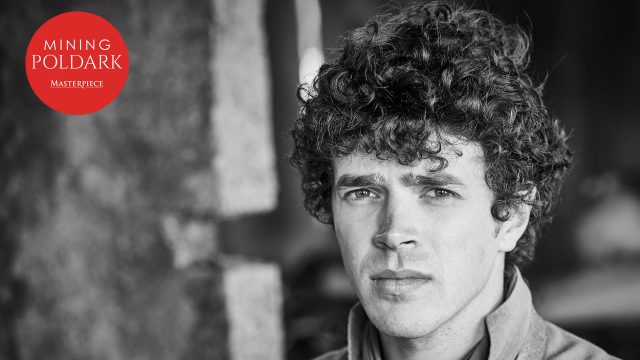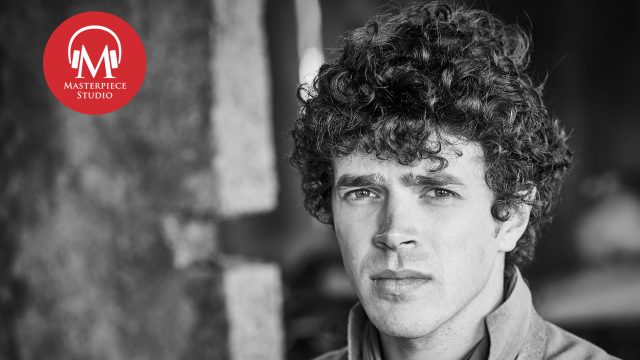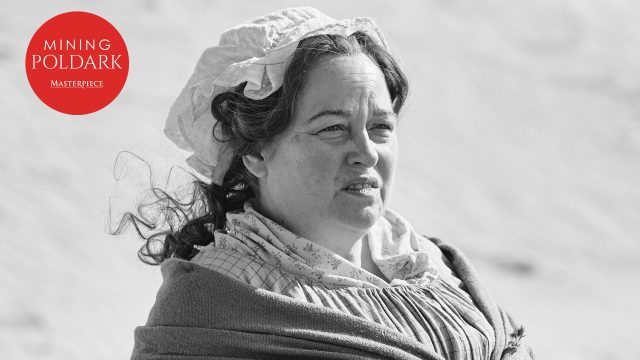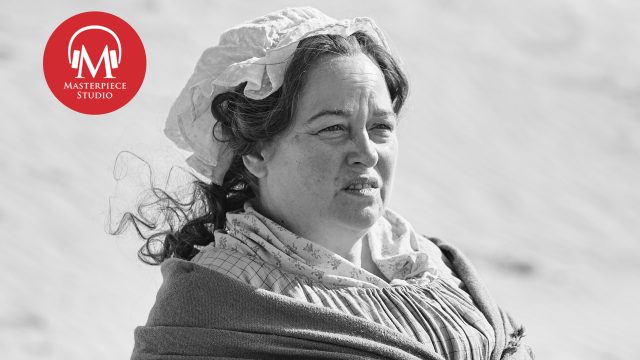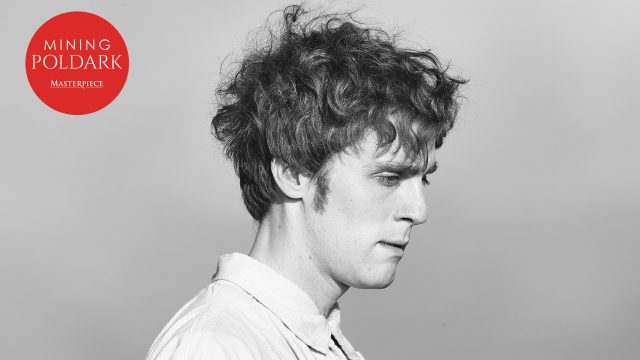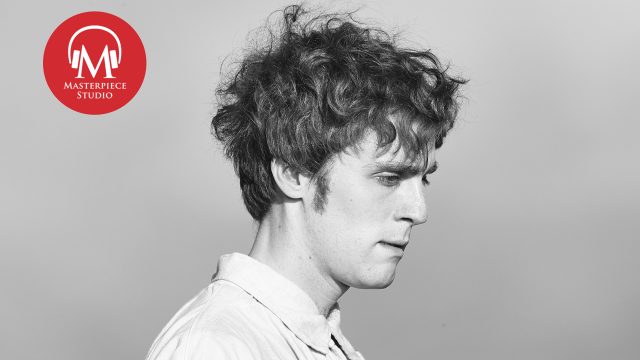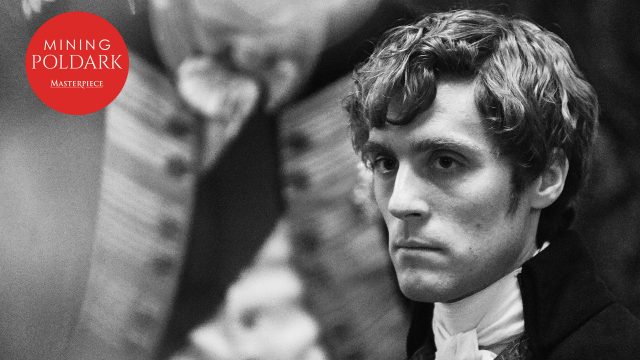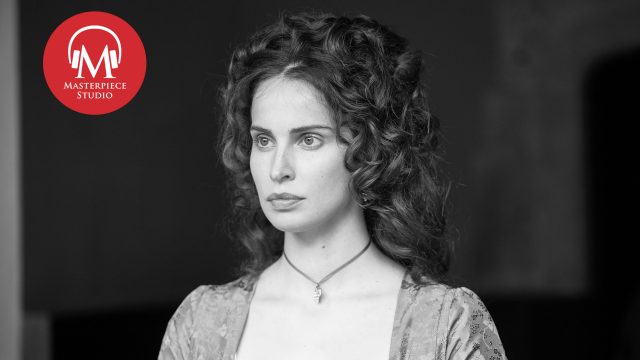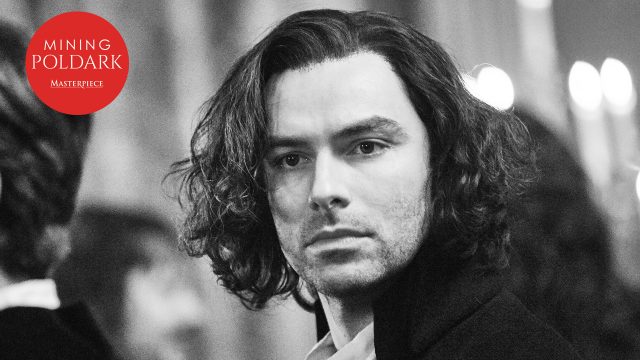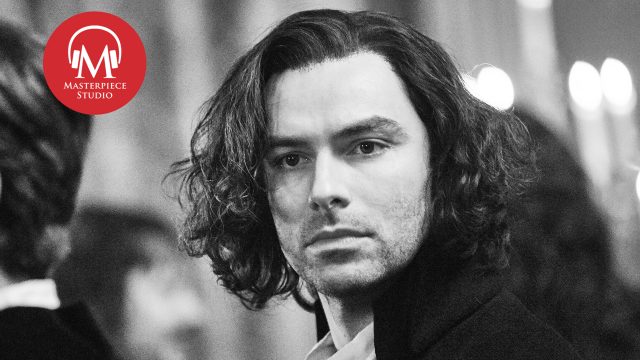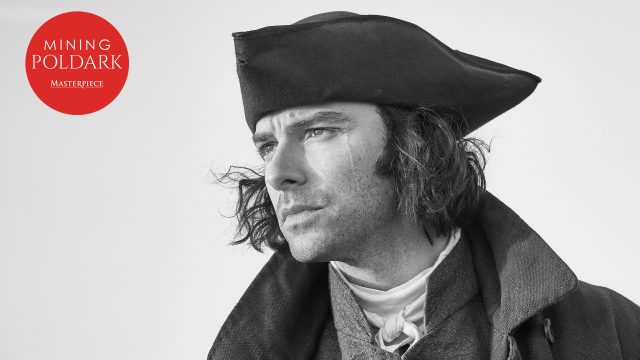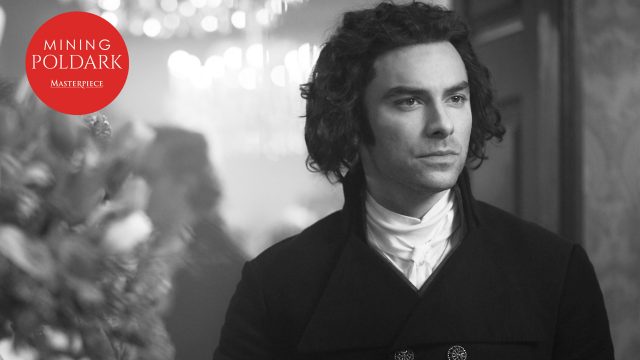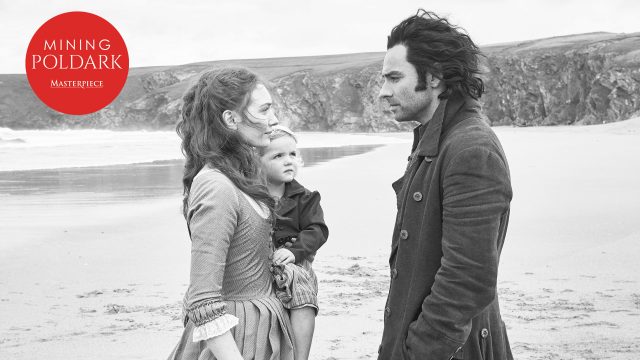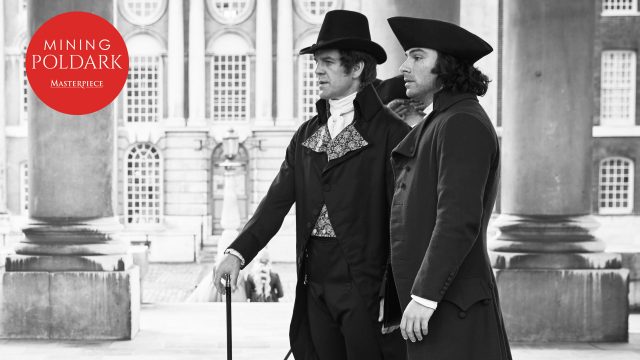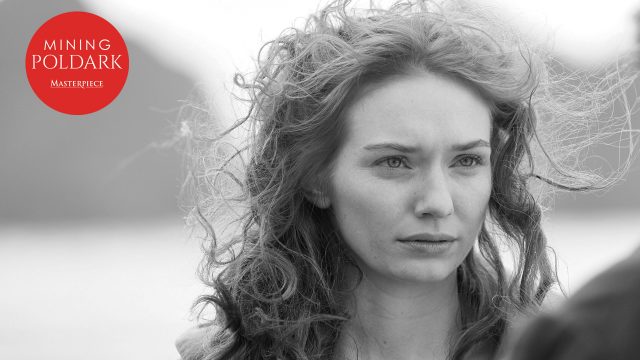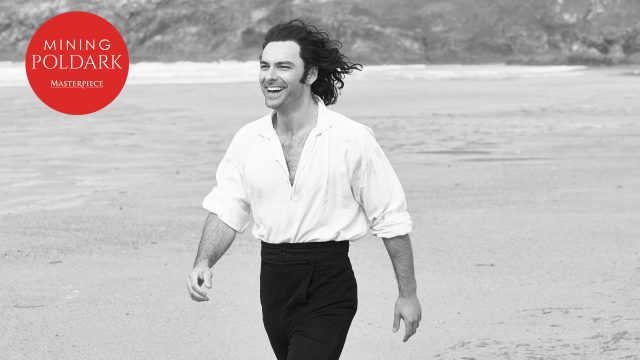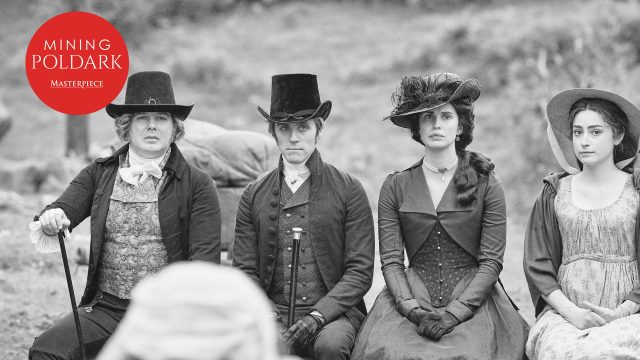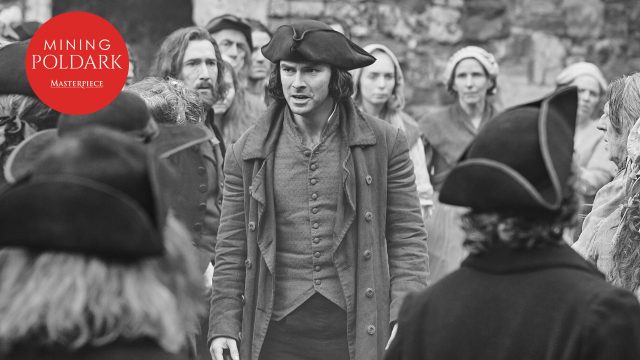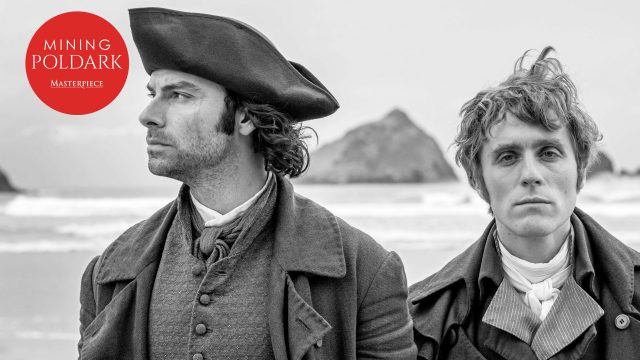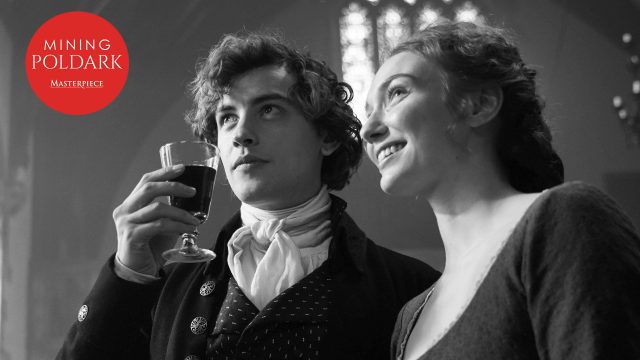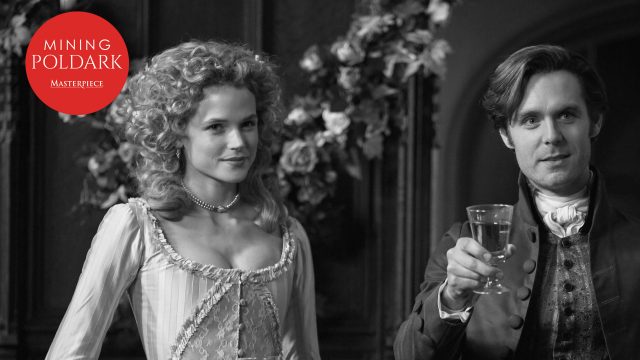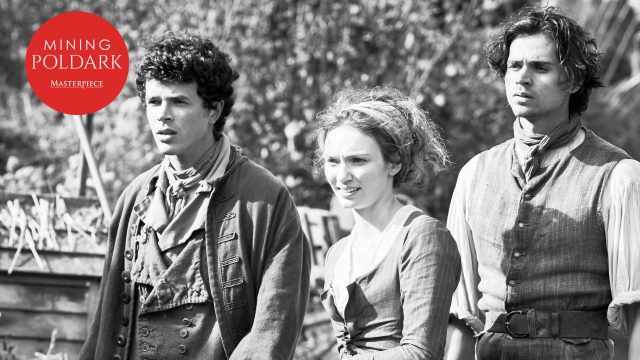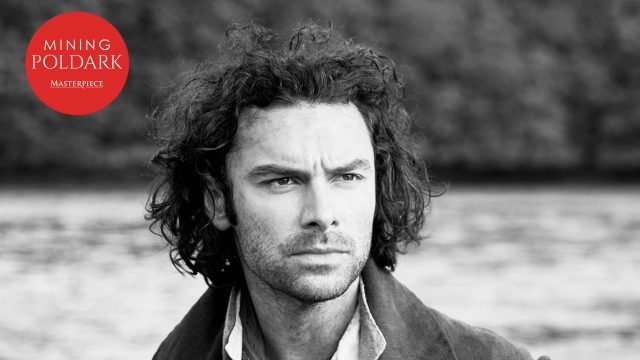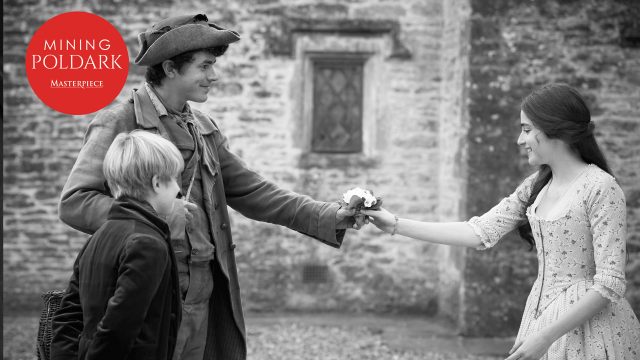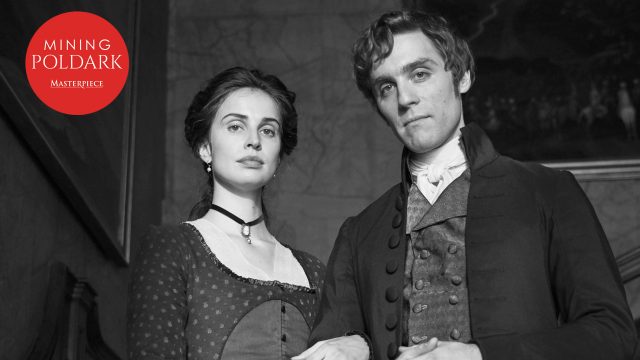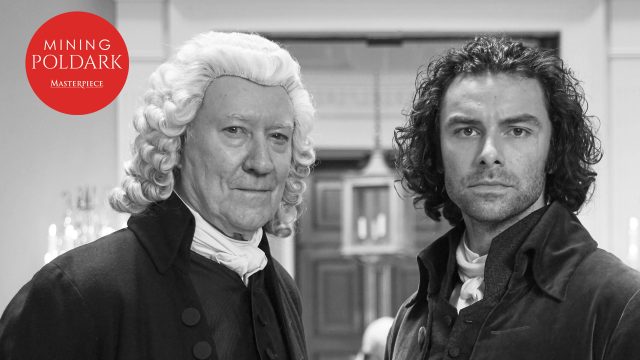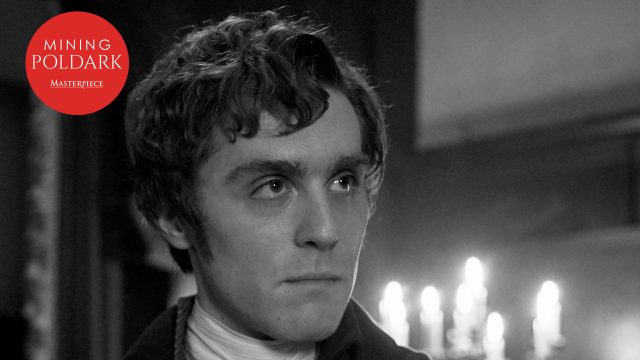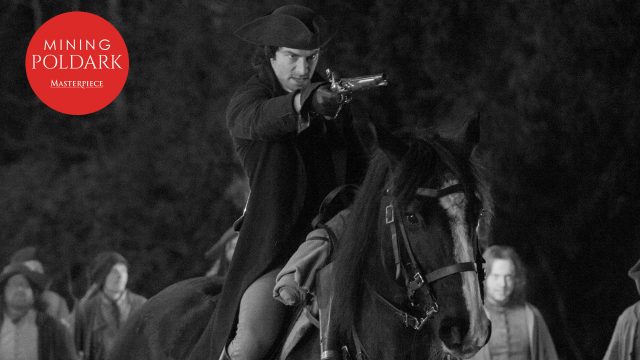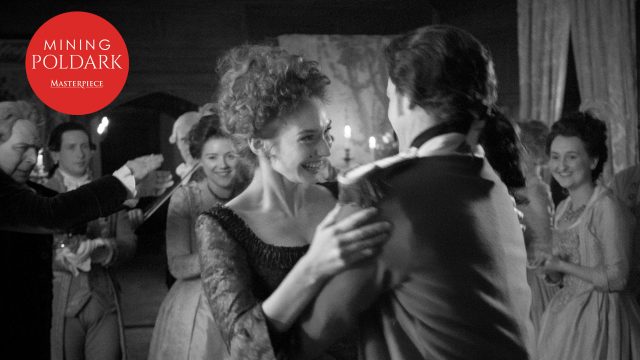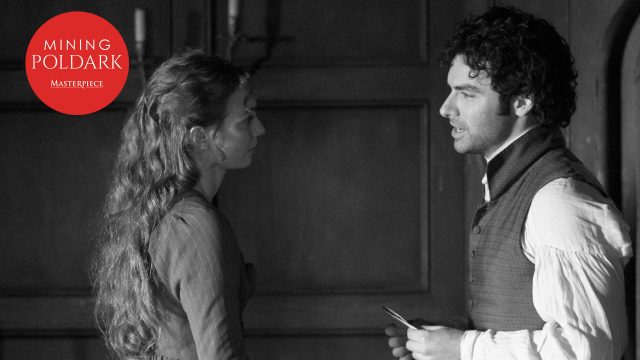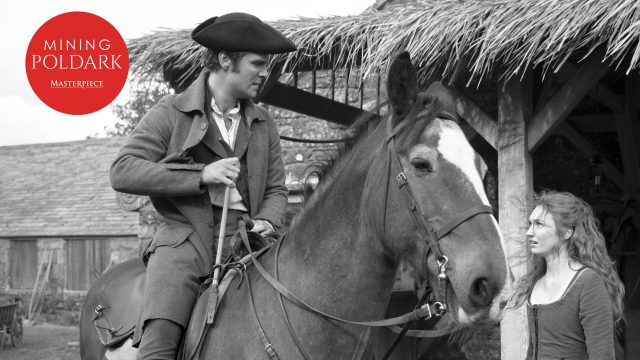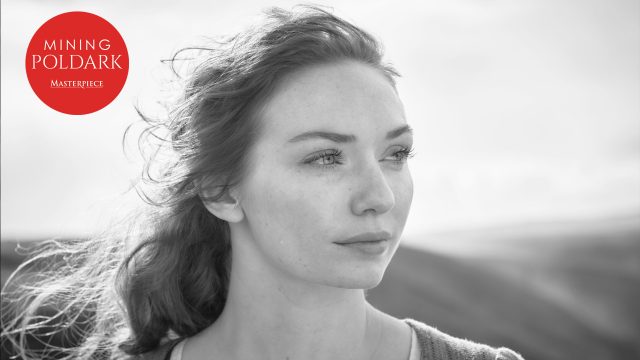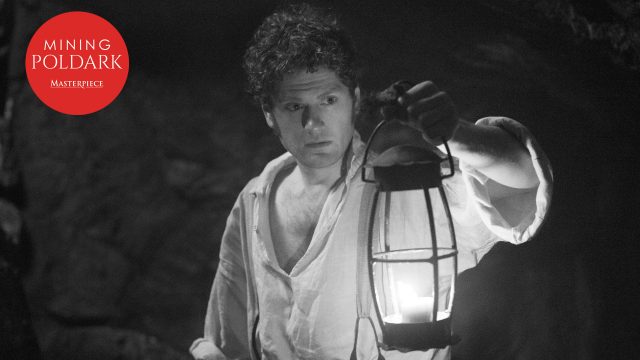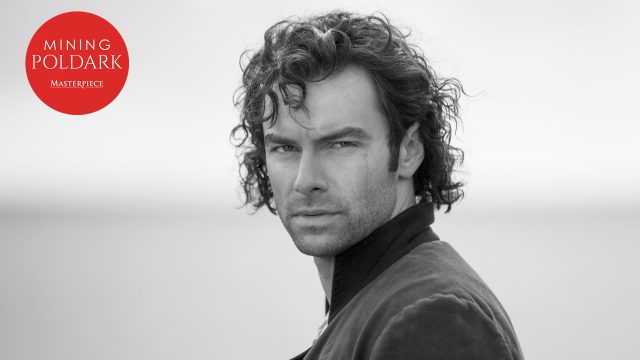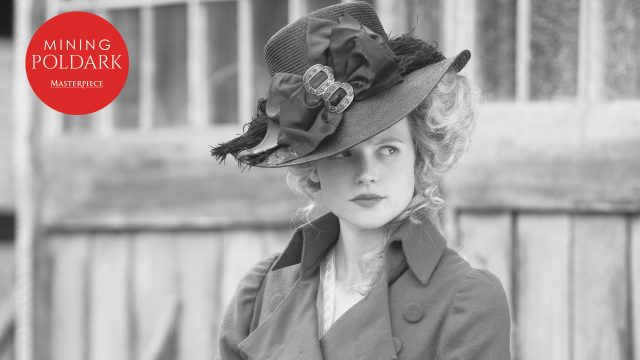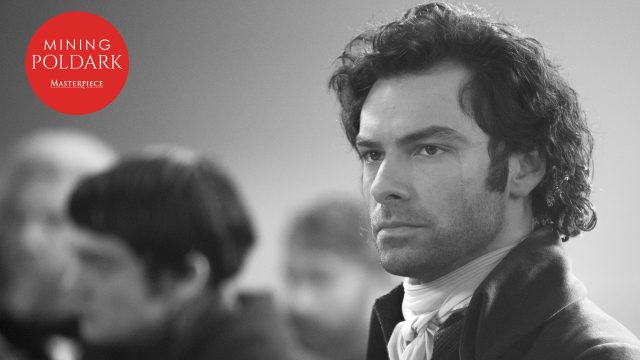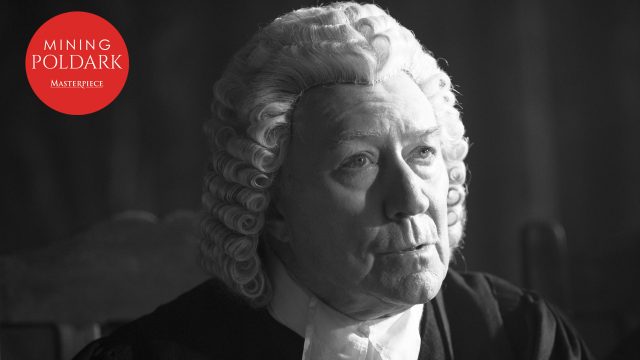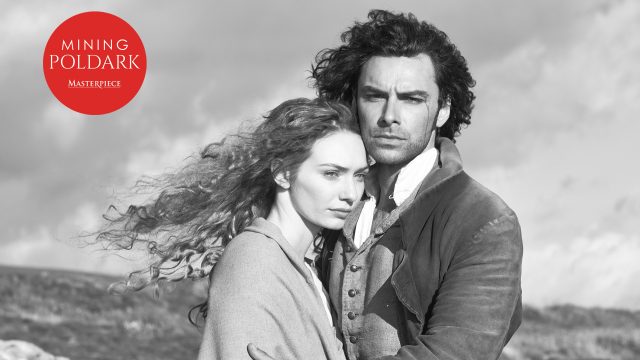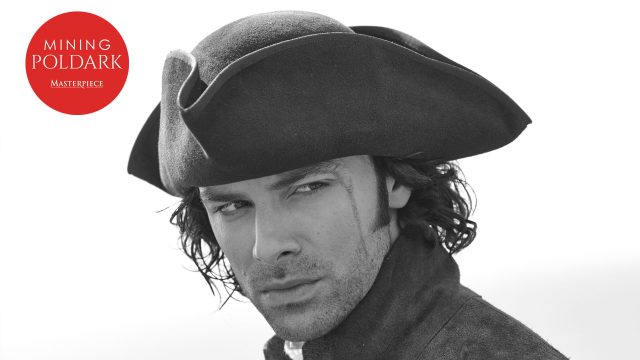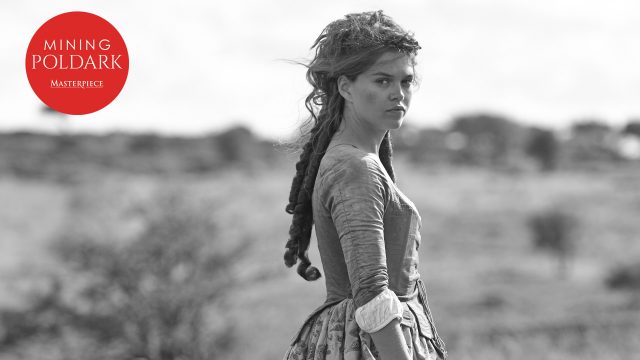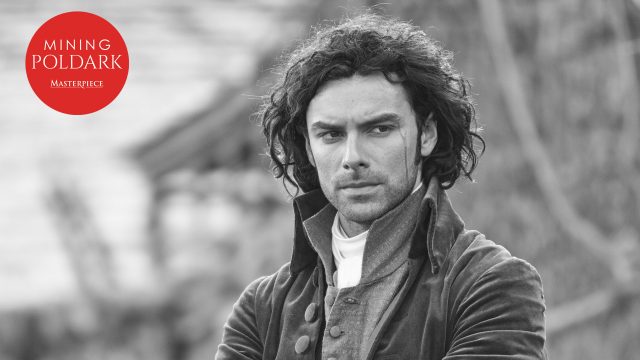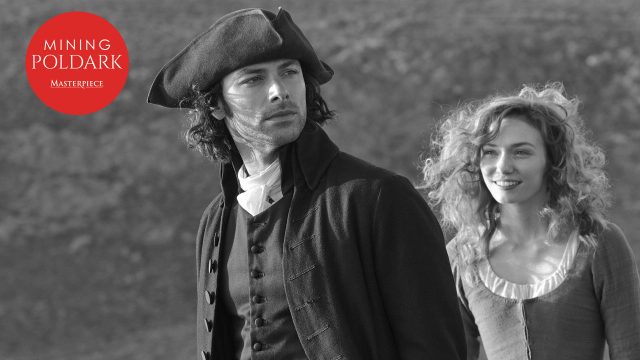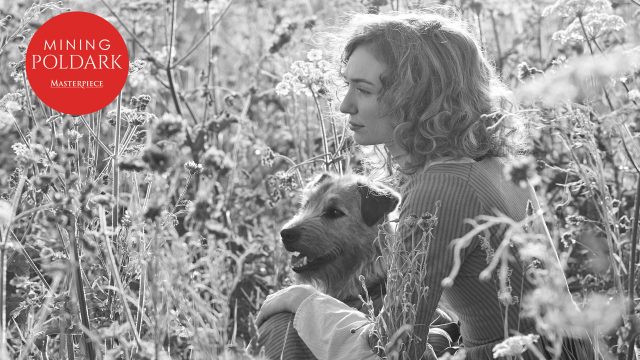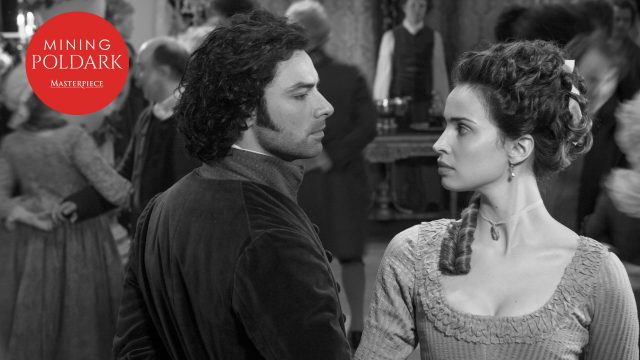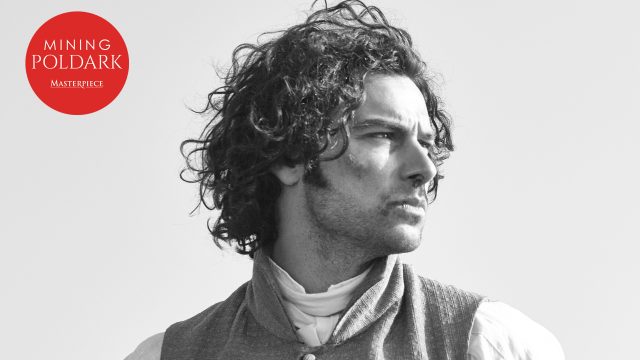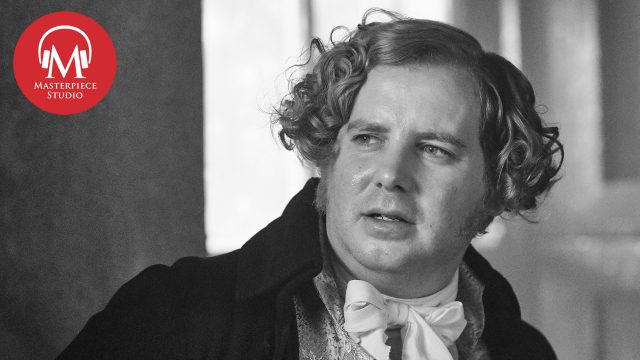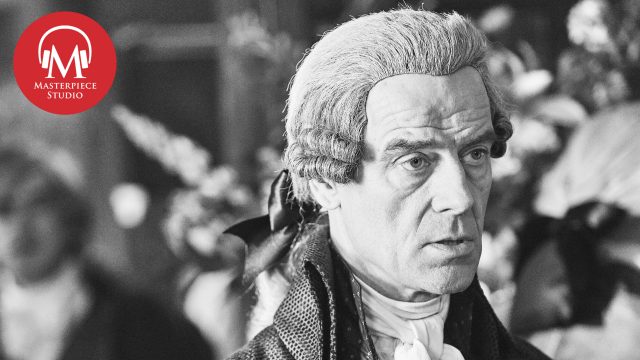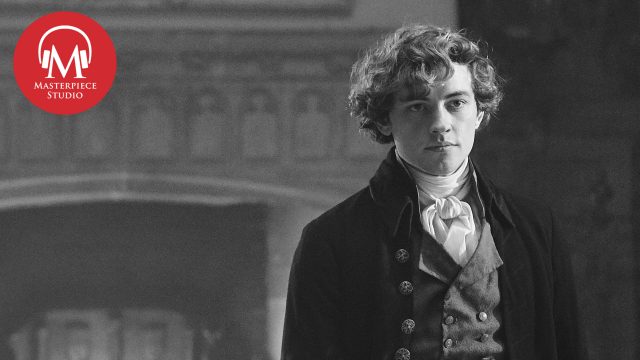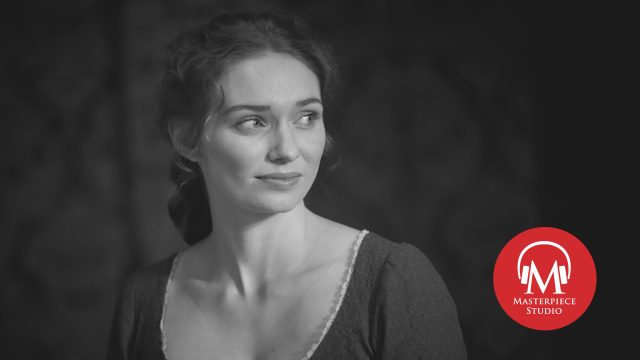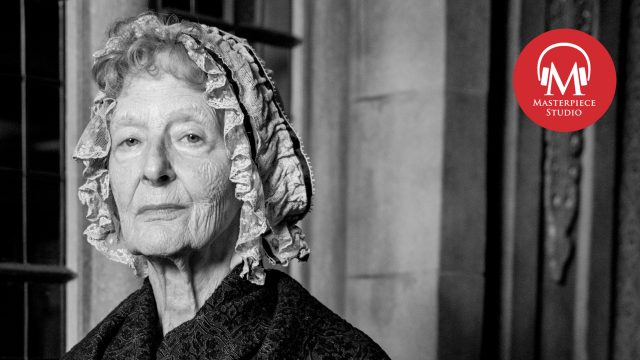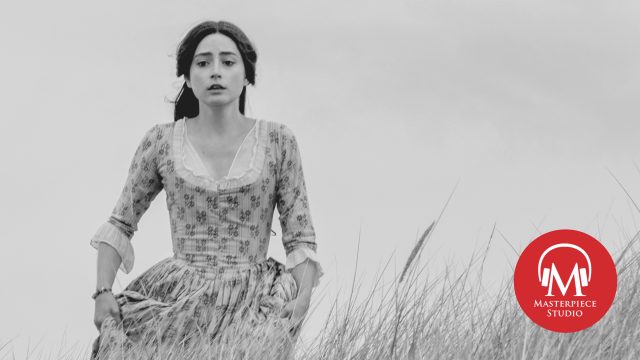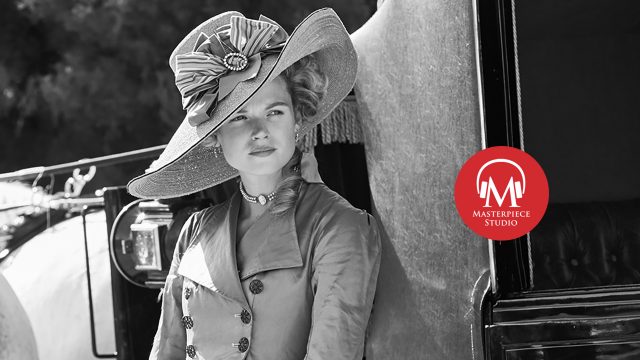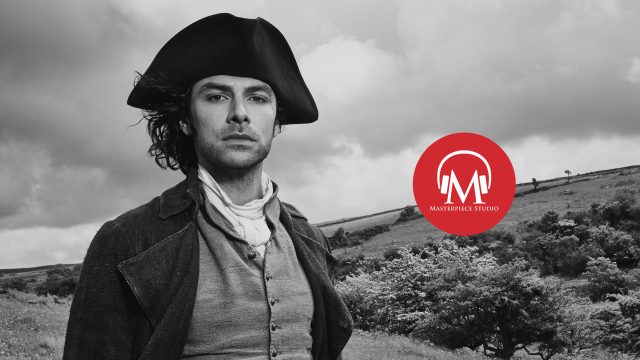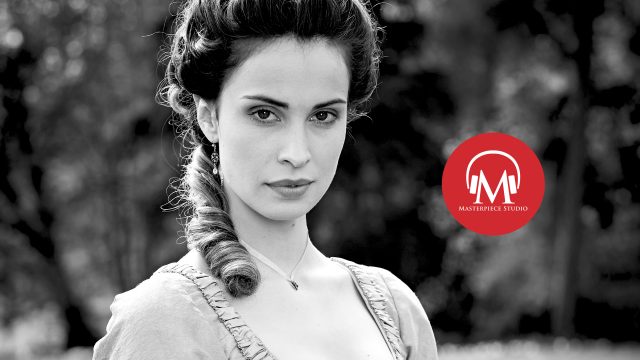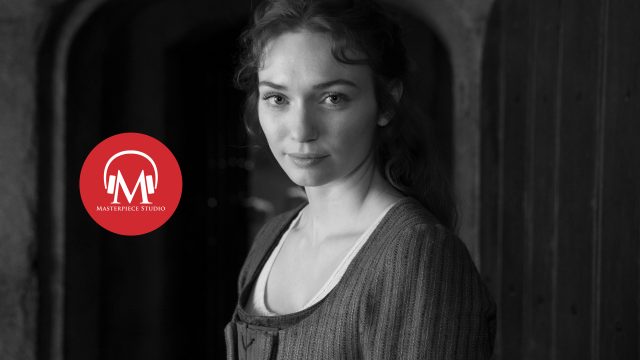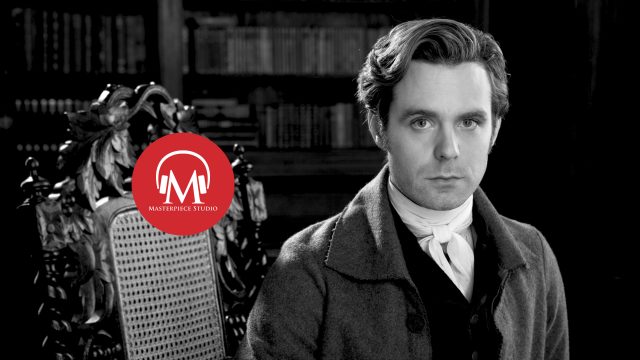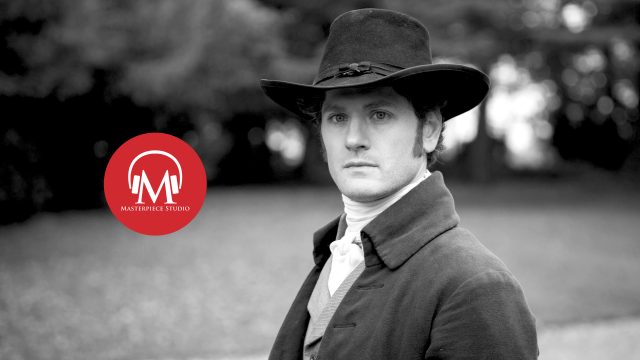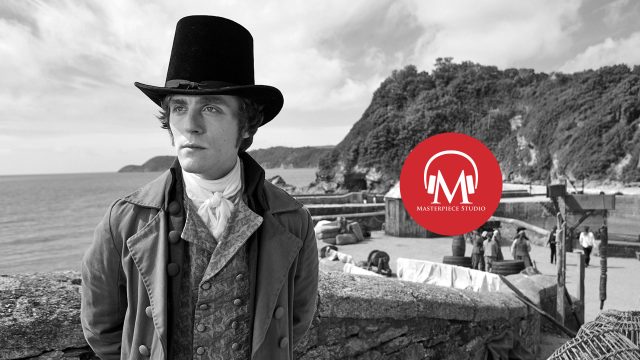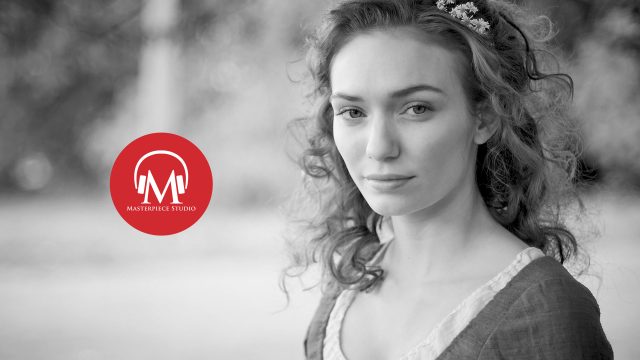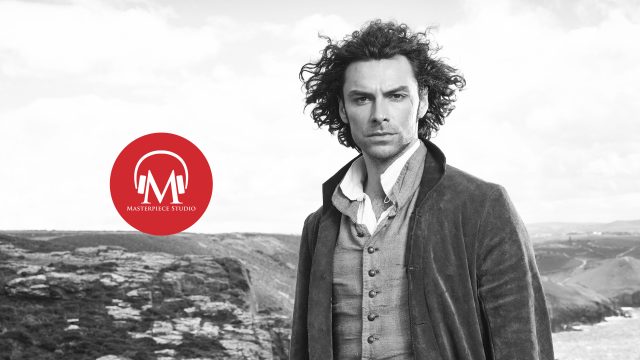Debbie Horsfield, the executive producer and sole writer of MASTERPIECE’s Poldark, is ready for the fifth and final season of her series. After the drama and sorrow of the series’ fourth season, she offers some hopeful hints about the story still to come.


Bonus: Poldark Writer Debbie Horsfield Looks To Fifth And Final Season
Related to: Poldark, Season 4
Download and subscribe on: iTunes | Spotify| RadioPublic
Transcript
Jace Lacob: I’m Jace Lacob, and you’re listening to a special bonus episode of MASTERPIECE Studio.
After Poldark’s stunning third season finale last year, who could have thought that head writer Debbie Horsfield’s already dramatic series could out-drama itself? But as the fourth season wraps up, it’s clear: Horsfield — and Poldark — have drama to spare.
CLIP
Ross: I’m here to inquire after Mrs. Warleggan.
George: Turn that man away!
Ross: George, for God’s sake, can we not put aside our quarrels in a time of sickness? I am concerned for Elizabeth, and will not leave until you tell me how she is.
George: Elizabeth? Oh..No, Elizabeth is dead.
Jace: With Elizabeth dead, Ross and George are even more at war. But it’s not all doom and gloom: after two seasons of heartbreak and horror, Morwenna and Drake are finally married.
CLIP
Drake: Marry me. Be my wife. In name only, I’ll never ask ye for more. Do ye not love me?
Morwenna: Of course I love you! This has never been just about love.
Drake: But it has…and can only ever be.
Jace: Horsfield could easily credit novelist Winston Graham’s source material for the emotional fourth season conclusion, but she’s also more than ready to take the drama to new heights. In a special bonus episode of the podcast, Horsfield reflects on Poldark’s fourth season, and looks ahead to the fifth and final season of the series.
Jace: And this week we’re joined again by Poldark creator Debbie Horsfield. Welcome.
Debbie: Hello, hi.
Jace: This episode marks the death of Elizabeth. What was behind the decision to end the season on this note, and how does it marke a true turning point for the show?
Debbie: Well that is how the the seventh book, The Angry Tide, ends. So it was a very powerful ending in the book. And we felt we needed to do it full justice. It is the end of an era, in terms of Elizabeth has been such a strong presence during the whole of the series that we’ve had. And in the books she’s always there in Demelza’s mind, and Ross’s mind and George’s mind, she’s such a powerful figure. And I actually when I was when I was coming to write the scenes in which she died, I actually found myself getting incredibly upset, as if, you know, like I was saying goodbye to a favorite real person, and I actually made myself cry writing them.
Jace: In that respect obviously Elizabeth is a fictional character. Heida Reid is a real, live person playing her. How difficult was it to say goodbye then to Heida Reed?
Debbie: Oh it’s very difficult when you when you have to say goodbye to any character but Heida, in particular, you know, she’s been there from the beginning, and she is so wonderful. And she is actually magnificent in series four, actually. You saw Elizabeth growing in strength at the end of series three and that continues into series four and she will be very much missed.
Jace: I love how this episode begins with a flashback to a much happier time before Ross jeft for America, which allows us not only to see a young Ross and Elizabeth in love, but also our dearly departed characters like Agatha and Francis.
CLIP
Francis: Is it true? You’re enlisting?
Ross: Sixty second regiment at foot.
Verity: No Ross, don’t say so. Francis, help me persuade him.
Ross: Persuade my father, it was his idea.
Francis: Only to save you from the gallows.
Verity: Well I know someone who isn’t impressed.
Aunt Agatha: What’s the matter with the men of this family?
Ross: It will be six months at the most, Aunt. You’ll hardly know I’m gone.
Jace: Where did the idea for this flashback come from?
Debbie: Well it was my idea, because obviously the story ends with the death of Elizabeth, and I was reminded what a key part she had played, not just in Ross’s life but that three men had been in love with her. Ross, Francis and George. And you know, Winston Graham makes it very clear, George and Francis never thought they were in with a chance. And yet actually, in the end, all three of those men had a relationship with her. And so I just wanted to revisit that. And in order to give that those death scenes, to give them all the power that they they could and should have by reminding us as an audience how key Elizabeth had been to those three men.
Jace: The scene also seems to show us one of the causes for the rivalry between Ross, George and Francis. As each as we say appears to be in love with Elizabeth in their own right. At its heart do you see Poldark as perhaps being about greed of both the monetary and a sexual nature?
Debbie: There are certain elements of greed of a monetary nature, but I wouldn’t say I don’t know maybe I would call it possessiveness. Maybe I’d call it an obsession. I mean clearly George was obsessed with possessing Elizabeth, and in a way you know, Ross’s feelings could sometimes be seen to verge on an obsession as well, it’s less greed it’s more possessiveness.
Jace: Elizabeth seals her fate here by going to the doctor to obtain ergot in order to bring about a premature birth. Was this a fairly common practice at the time for women who might be in a similar situation?
Debbie: Apparently, yes apparently that’s that’s you know that’s an old remedy. There wasn’t room to have the whole scene that Winston Graham wrote. But there’s a very there’s a very long section in which the physician explains that if she feels that something is going wrong she has to summon a physician tell him what she’s taken. Because apparently that the dosage had to be so precise and yes it very, very easily could go wrong, and unfortunately did.
Jace: I asked Heida about this the other day but I’d be curious about your own response. Why doesn’t Elizabeth tell Dwight about the ergot given that the doctor had warned her about those complications?
Debbie: Gosh I think probably that she didn’t want to admit even to Dwight what she had done. It’s a strange one, really, because and I suppose there is no guarantee that he would have been able to do anything to reverse if she did. The doctor was clear with her that she should say something straight away. Initially the doctor that was called in was not Dwight, it was Dr. Choke. He would be the last person she would want to confide that to. And by the time Dwight came, it was probably too late, and she probably knew it.
Jace: I was shocked here that Elizabeth doesn’t have this very long drawn out death scene but actually sort of very quietly goes into the night. What was behind the decision to have Ross find out at the same time as the audience that Elizabeth had died?
Debbie: That’s the books, actually. It’s the most awful moment in the book where he comes around to ask after her health. And George just sort of lashes him, with this, ‘Oh, Elizabeth’s dead,’ which is George’s ultimate weapon really to basically lob that grenade at Ross even in that moment of his own hideous grief. But the book does it just beautifully so we’ve basically just taken that.
Jace: I mean it is much more emotionally wrenching in a way that Ross doesn’t get to say goodbye to his first love, and George is there for that moment.
Debbie: Yeah and I think actually it’s incredibly moving that George is because you know there’s been a lot of debate about does George really love Elizabeth or is she just a possession to him is she just a trophy. But I have always felt that in as much as George is capable of loving anyone he does love Elizabeth and he is grief stricken. I mean everything that he has aimed for and achieved he did it because of her. For her sake and now when he’s got everything. You know he’s even on the verge of becoming Sir George Warleggan, you know he’s got a second child whose paternity there can be no doubt about. He has absolutely everything he could wish for, and then it’s all taken away because the person that matters most to have the approval of her has gone.
Jace: Before this next question, a brief word from our sponsors…
Viking. Viking’s all new, custom-built ocean fleet is designed to bring the traveler closer to the destination, with all veranda staterooms and a shore excursion included in every port. Viking. By River and by Sea. Learn more at VikingCruises.com.
Jace: Well the death of Elizabeth does bring Ross and Demelza finally together again after a season of various trials. Are these two finally now at peace with one another?
Debbie: I think that from now on, the books are very clear about this, they’re a team. That sounds quite unromantic, but personally I think it’s the most romantic thing to be writing about a relationship which has longevity where the two people involved have a bond which carries them through decades and decades, more children, more turmoil, but they remain steadfastly together. Personally, that’s my idea of romance not just you know the kind of heady walks along the cliffs that we saw in series one. I think this story of a real genuine marriage is genuinely romantic because it’s because it’s real, it’s founded on a genuine bond, and a depth of love.
Jace: I love the scene at the churchyard between Geoffrey Charles and Verity.
CLIP
Geoffrey Charles: She was not a Warleggan.
Verity: No, she was a Poldark.
Jace: It’s a very small moment but it says so much about the rivalries of this show. Are the battle lines being drawn here in this scene?
Debbie: In a way yes because it’s very clear that Geoffrey Charles is never going to be a fan of George. George was generous to Geoffrey Charles when he was younger but it was always a means to an end to gain Elizabeth’s favor, because he knew how important Geoffrey Charles was to Elizabeth, so that rivalry between the Poldark and the elections continued right up to book12.
Jace: Looking back at this season as a whole, do you have a favorite scene?
Debbie: I think I enjoy it more as I go on to be honest. And I think this is my favorite series to be honest. I think it takes us to places that we haven’t been before. But it also reestablishes some of the things that we loved about the earlier series, but most particularly reconnects Ross and Demelza in a big way so I think probably it would be a two hander between Ross and Demelza where they are finally reconnecting again, because both of those they re-establish that deep deep connection between the two of them.
CLIP
Ross: I loved her once, as well you know. And there’s a part of me that will always think of her with affection, but I realized that day that she never was, and never could be what you are to me. Indispensable. Irreplaceable.
Demelza: You tell me this now, because?
Ross: I think perhaps I’ve taken you for granted. Assumed you knew what to me was obvious. That you are the better part of me.
Demelza: I think perhaps I’ve been guilty of the same.
Jace: Now after what I would call a truly star-crossed romance, Morwenna and Drake finally get married in this episode. Do you think that the unsolved murder of Ossie could come back to haunt them, or is it finally smooth sailing ahead for these two?
Debbie: It’s not necessarily smooth sailing ahead because Morwenna is fairly traumatized from her marriage to Ossie, and I mean that is genuine post-traumatic stress disorder that she is dealing with and that’s not something that’s going to go away in a hurry. So there will be challenges ahead but in terms of, will Drake ever be blamed for the death of Ossie? Happily, no.
Jace: That’s good to hear. What makes a Debbie Horsfield show a Debbie Horsfield show?
Debbie: I come from quite a big family. I come from a family of lots of girls. I come from a family where my parents were married for over 40 years. So I, I think that I tend to write about relationships. I tend to be quite realistic but optimistic about relationships. I tend to write about groups of women quite a lot actually often in my own contemporary work, it’s in workplace settings. But I think that the concerns and the subjects and the territories that interests me are not dissimilar to the ones in Poldark. I’m fascinated by human relations and what makes people tick and what makes them behave in extreme ways. And that’s the same whether it’s the 18th century or the 21st century.
Jace: What can you tell us about your upcoming UK drama, Age Before Beauty?
Debbie: Yes. Couldn’t be more different to Poldark. The precinct of it — though not necessarily the what we actually deal with in in the story — it’s set in a in a kind of beauty parlor which specializes in anti-aging treatments. However it’s not the treatment that we are dealing with we’re talking about a family saga, multigenerational where we’re looking at what the expectations are that we have of people at what various ages. I think it was it was inspired actually by an article I read in in a paper saying what you can and can’t wear at what age so apparently you can never wear leather trousers after the age of 19, if you’re not over six foot tall. You can have long hair, after 37. You can’t wear a bikini after 32. It was so prescriptive and ludicrous that I thought there’s got to be a series here about how do people either conform to those so-called rules or how do they kind of buck the trend. So we’re looking at three generations of a family who all work in the same business and how they contradict expectations, I suppose.
Jace: I can’t wait for that. Debbie Horsfield, thank you so much.
Debbie: Thank you.
Jace: And just as Poldark wraps up for the year, so, too, will MASTERPIECE Studio. On the other side of the New Year, we’ll be back with new episodes and new interviews for returning series like Victoria, Unforgotten, and Grantchester and for brand new series like Mrs. Wilson.
And in February, we’re launching Mining Poldark, MASTERPIECE Studio’s brand new Poldark recap podcast featuring Robin Ellis, the original Ross Poldark from the 1970s adaptation of the series.
Robin Ellis: He’s a dark horse he’s unpredictable, in other words and I think it’s the unpredictability which Elizabeth certainly experiences in the first chat they have puts her off. I think it really he’s changed from that much blander character that left for the war.
Jace: Check your podcast feeds in the weeks ahead for a special preview of the new series, and be sure and subscribe to the new podcast on Apple Podcasts, Stitcher, Radio Public, or wherever else you subscribe to podcasts.
MASTERPIECE Studio is hosted by me, Jace Lacob and produced by Nick Andersen. Elisheba Ittoop is our editor. Susanne Simpson is our executive producer. The executive producer of MASTERPIECE is Rebecca Eaton.
Sponsors for MASTERPIECE on PBS are Viking Cruises and The MASTERPIECE Trust.
MASTERPIECE Newsletter
Sign up to get the latest news on your favorite dramas and mysteries, as well as exclusive content, video, sweepstakes and more.












